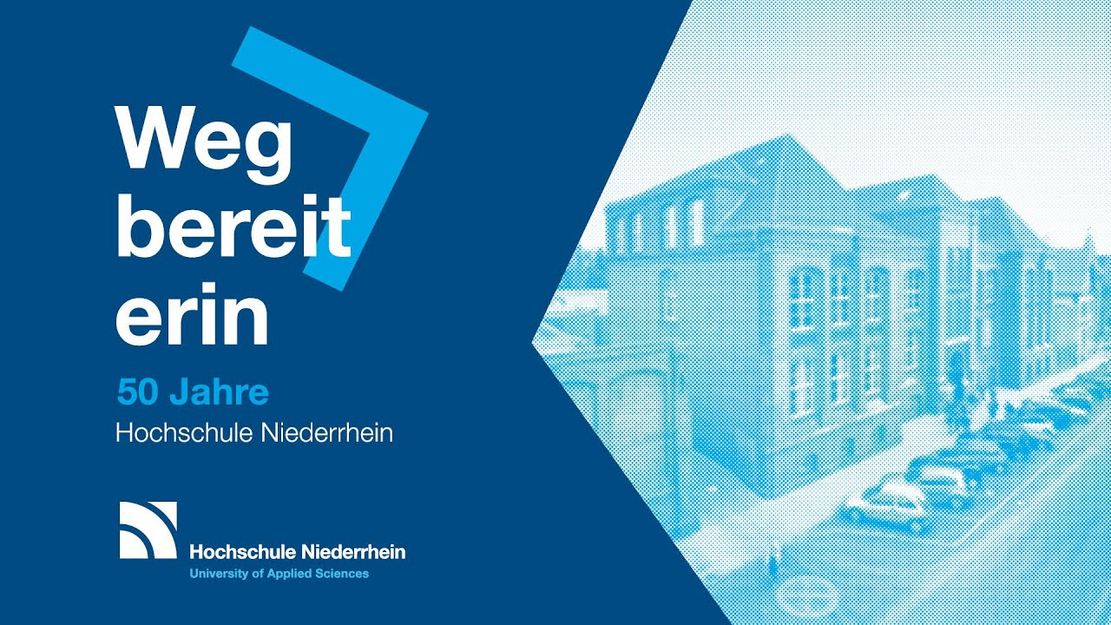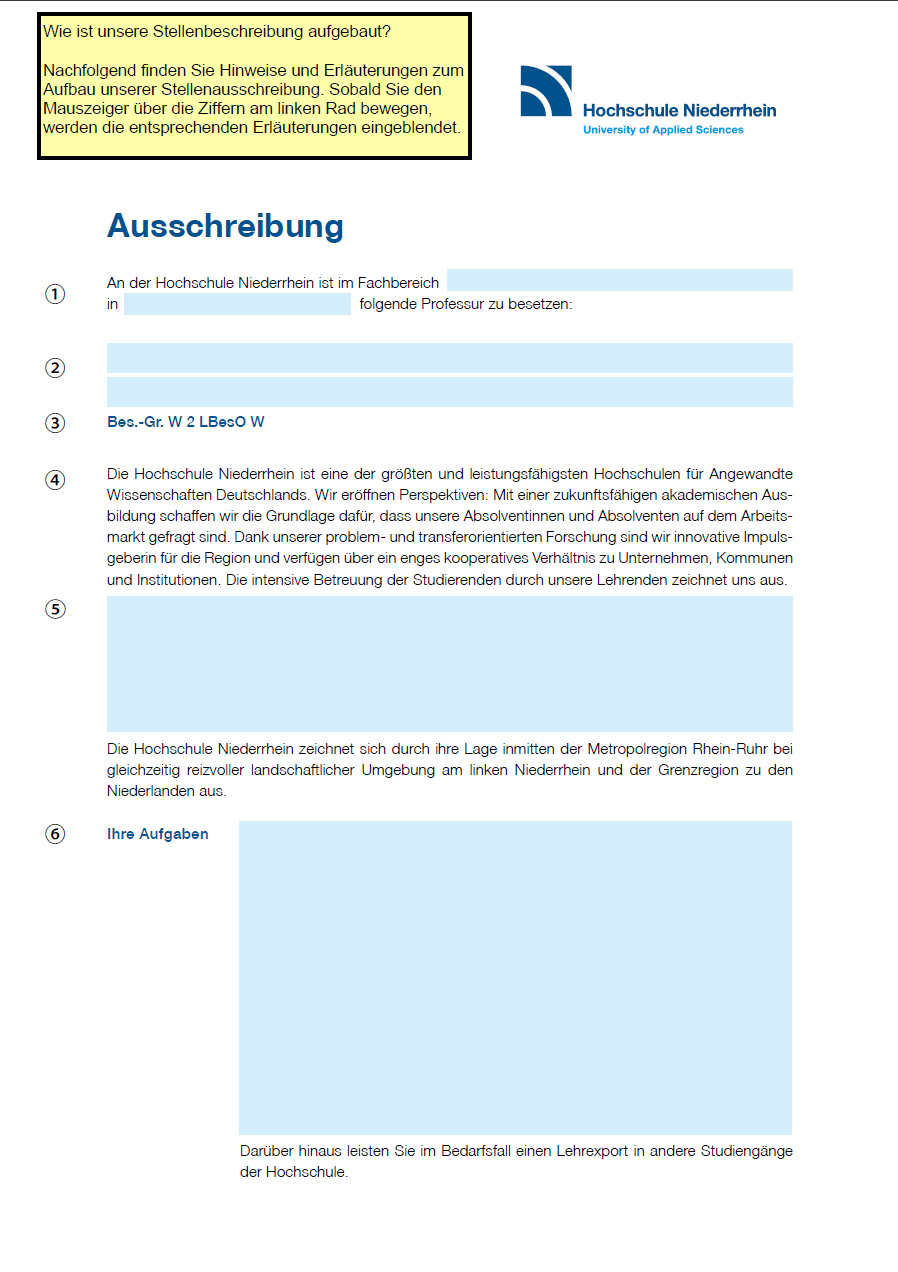The selection process for filling a professorship is very complex. In the following, we briefly outline the most important points of the procedure.
Who is involved?
The selection procedure is primarily accompanied by a specially appointed appointment committee.
The appointment committee usually consists of
- five lecturers (professors from the faculty for which the appointment is being made, plus one professor from another faculty or another university),
- one academic employee,
- one employee from technology and administration (in an advisory capacity, without voting rights)
- two members from the group of students.
All members are bound to secrecy and are aware of the confidential treatment of all documents in the procedure.
The committee is assisted by the appointment officers, who support the committee in applying the appointment regulations.
The Head of Department, the Equal Opportunities Officer and, if applicable, the Representative for Severely Disabled Persons may attend the meetings of the Appointments Committee in an advisory capacity.
Who decides on the appointment?
The Hochschule Niederrhein President decides on the granting of an appointment.
The decision is based on the report of the appointment committee, the presentation of the appointment officer, the statement of the Equal Opportunities Officer and a description of the appointment management procedure.
Duration of the procedure
An appointment procedure usually takes between eight and twelve months.
This is partly due to the involvement of the various boards and committees and external experts, which require a certain amount of preparation and processing time. We endeavor to carry out the procedure as quickly as possible in compliance with the applicable rules.
If you have any questions about the status of the appointment procedure, you can always contact the chair of the appointment committee.
Information on the status of the procedure
Once your application has been received, you will receive confirmation of receipt from the appointment management team.
As a rule, you can assume that you will receive an invitation to a personal interview within 8-12 weeks of the closing date if your application has been assessed as suitable.
However, you will only receive a rejection once the procedure has been completed.
If you have any questions about the status of the appointment procedure, you can always contact the chair of the appointment committee.
However, you will only receive a rejection once the procedure has been completed.
If you have any questions about the status of the appointment procedure, you can always contact the chair of the appointment committee.
On what basis does an appointment procedure take place?
An appointment procedure is carried out on the basis of the appointment regulations of The Hochschule Niederrhein and is supervised by the appointment officers.
Stages of the selection procedure
An appointment procedure usually involves various stages at which your suitability for the professorship is assessed:
- Application documents
- Structured interview with predetermined questions that are asked equally of each applicant (ensures objectivity, comparability and equal treatment of all applicants)
- specialist presentation, in which you give a presentation on a predetermined topic that is the same for all applicants or a topic of your choice
- Technical interview with predetermined questions that are asked equally of all applicants
- Trial course, in which you give a course to students on a topic previously determined by the appointment committee for all applicantstwo external reviews based on the documents you have submitted (application documents, presentations for the trial course and specialist lecture, etc.)



















